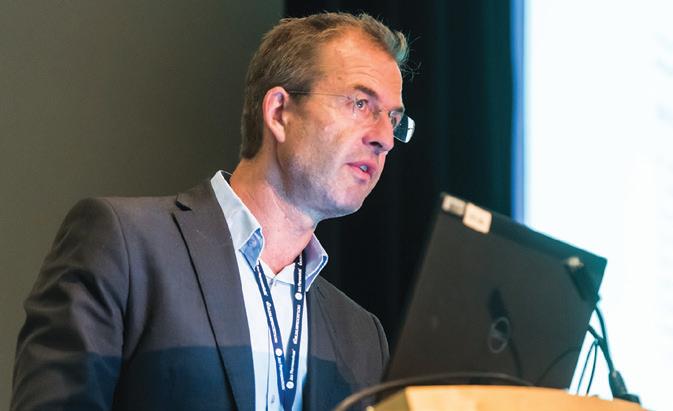
10 minute read
Sundowning
A sleep disorder may be affecting your loved one with dementia.
By Antonio Culebras MD, FAAN, FAHA, FAASM
Antonio Culebras MD, FAAN, FAHA, FAASM is a Professor of Neurology at SUNY Upstate Medical University in Syracuse, NY. His research has led him to study a sleep disorder you may not have heard
Antonio Culebras MD, FAAN, FAHA, FAASM of: Sundowning. A sleep disorder usually reserved for those living with dementia or Alzheimer’s, it is characterized by the confusion of when sleep should occur.
If you know of someone experiencing a state of confusion in late afternoons or nights accompanied with wandering, pacing or being stuck in a confused state, they may have sundowning. Dr. Culebras was interviewed about the specifics on this circadian disorder.
Q: In your own words, what is sundowning?
Sundowning is a circadian dysrhythmia characterized by reversal of the sleep-wake rhythm, confusion, occasional agitation and nocturnal wandering.
Q:Who suffers from sundowning?
It occurs generally in older people with poor brain reserve particularly if they suffer delirium, dementia or encephalopathy, which is damage or disease that affects the brain.
Q: What are signs a loved one may be dealing with sundowning?
The chief characteristic is the tendency to wander at night in a confused state. This creates risk of accidents and is very disturbing to family members. Sundowning at home is the most important reason for requesting institutionalization of the patient. In the hospital, sundowning represents one of the main factors that delays placement, since nursing homes dislike accepting patients who wander at night.
Q: Do you have any tips on how to sleep better if living with sundowning?
Sundowning is challenging and resistant to management. Caregivers may want to discourage daytime napping and try turning on floodlights in the bedroom during the night. Soft floodlights are turned on at night to provide some visibility in case the patient gets out of bed. This visibility dispels some of the confusion. Otherwise, total darkness seems to add to the confusion. Lack of light seems to play an important part in sundowning. The bedroom should also be reviewed for safety and dangerous items removed while windows and doors secured.
Q: What led you to study sundowning?
My activities in the Stroke Unit expose me frequently to the challenge of sundowning in patients convalescent from stroke or patients who have been mistakenly admitted because
Sundowning continued on page 26
25 | January/February 2021
Sundowning continued from page 25
of encephalopathy and have no stroke. Generally, these are patients with baseline cognitive deficits who become decompensated because of the stroke or the encephalopathy. Sundowning delays discharge from the unit, sometimes for many days or weeks. Q: Can you highlight current research on this topic for those who would like to learn more? We are exploring best management of sundowning. In addition to removing causes of cognitive decompensation, we add mild tranquilizers at night, leave floodlights on at night and discourage napping during the day. Most importantly, we are exploring the use of bright light during daytime hours, starting at 9:00AM. Our current protocol is to expose patients for 20 minutes to bright light (5,000 to 10,000 lux) and to open window shades. Exposure is continued for at least three sequential hours in the morning. Bright light boxes are available commercially and are not expensive. Melatonin is very popular, but has little to no effect.
Currently, there is no treatment for sundowning other than adjusting light levels, but by diagnosing the disorder, caregivers are able to better understand and prepare for disruptions in sleep. If you suspect your loved one is living with sundowning, contact his/her primary physician with your concerns.
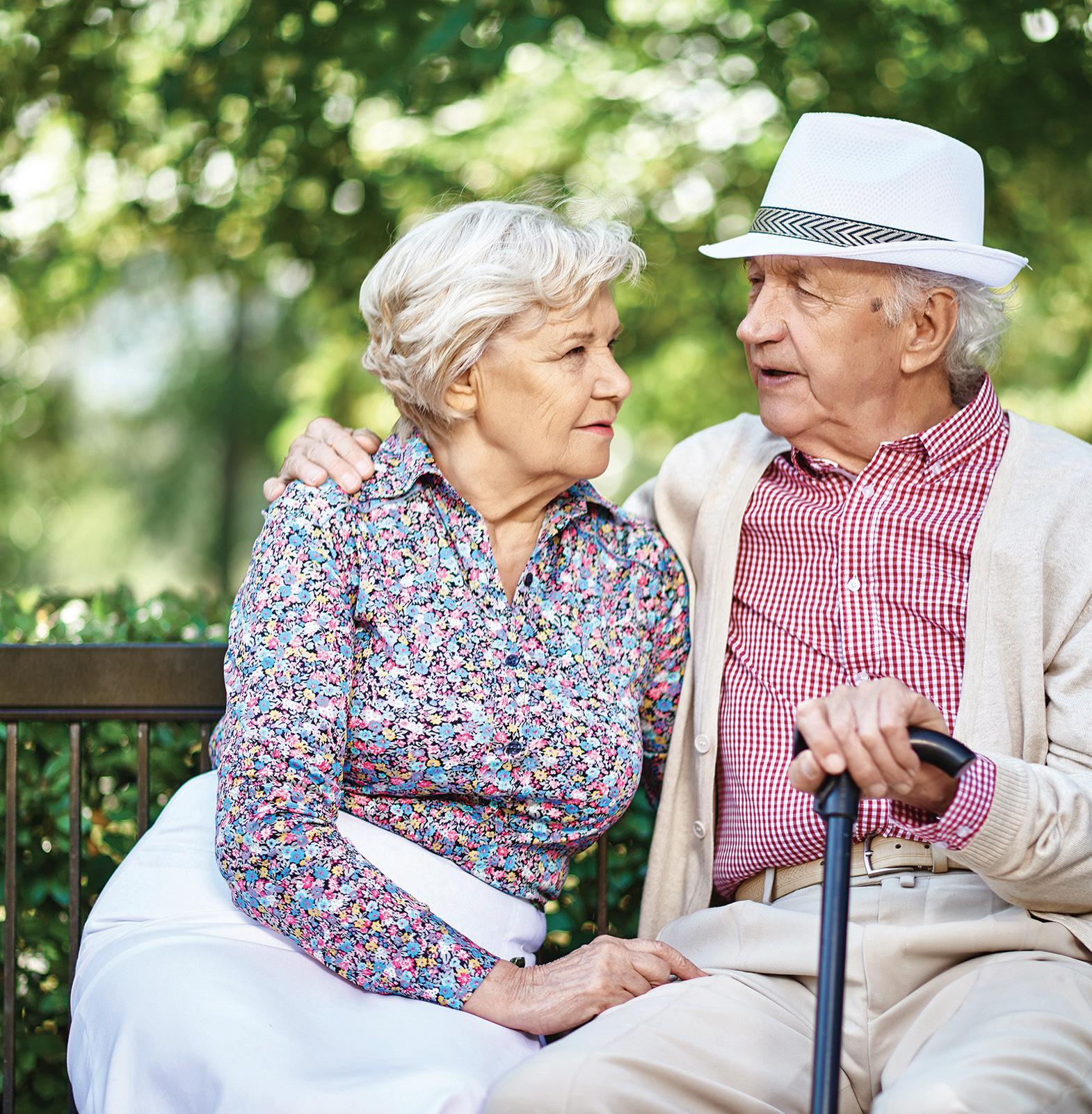
26 | January/February 2021
Right Now in Sleep Science
A new study reveals that sleep deprivation and/or lack of sleep impairs the ability to stop and block unwanted thoughts. Intrusive, negative or unwanted thoughts tend to be a complaint of those living with depression, post-traumatic stress disorder and other psychiatric conditions. Sleep deprived participants reported an increase of nearly 50% in unwanted thoughts compared to those who had a good night’s sleep. This data suggest that sleep loss could contribute to mental illness by developing symptoms and obstructing thought suppression mechanisms.
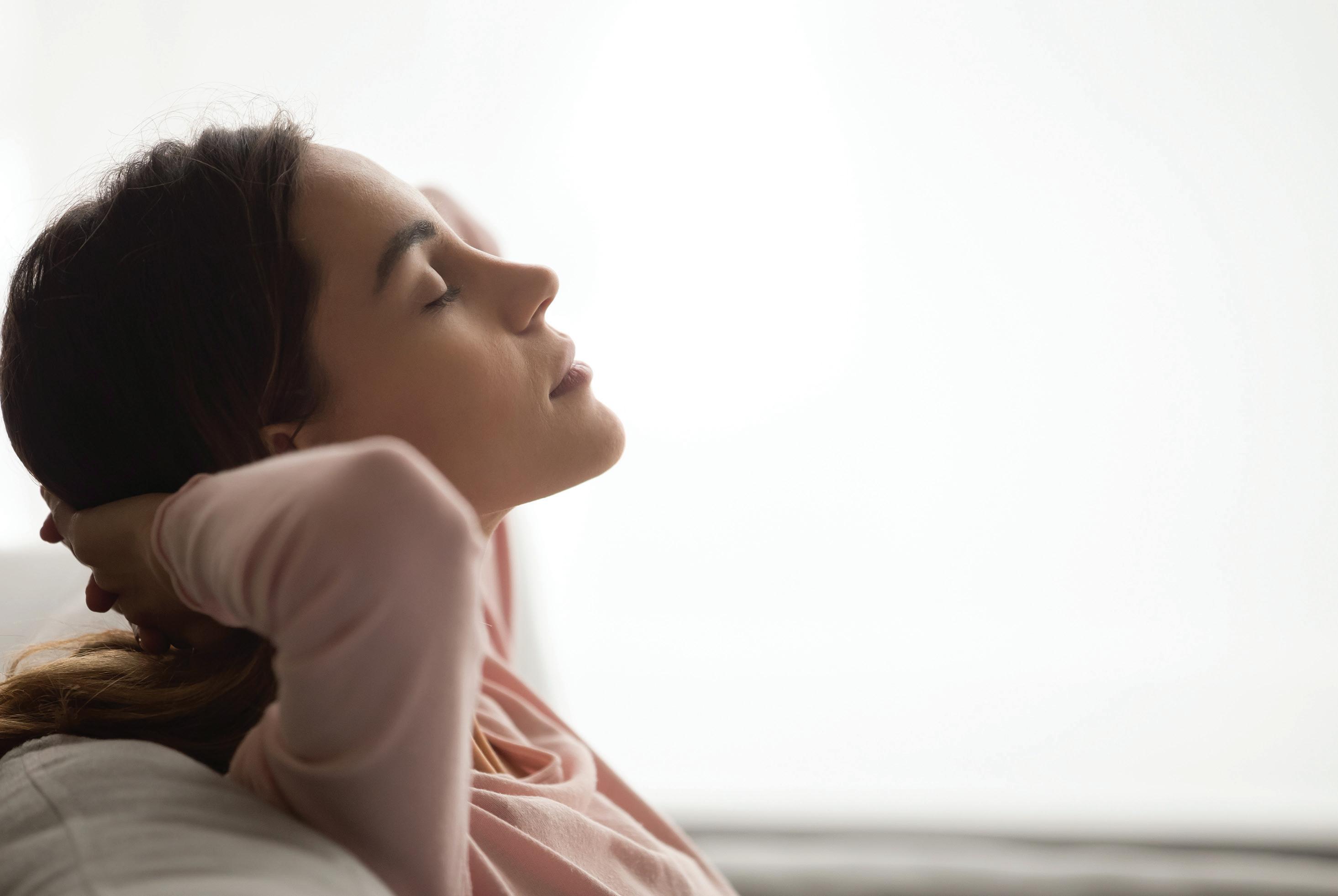
Clinical Psychological Science. October 2020.
doi.org/10.1177/2167702620951511
Lourdes DelRosso, MD
Melissa C. Lipford, MD
Robert J. Thomas, MD
Rochelle Zak, MD
Ask the Sleep Doc As answered by our issue reviewers.

Q: Is it normal to awaken to use the bathroom several times per night?
Dr. Thomas
No. This reflects either fragmented sleep, resulting in periods of wake after each sleep cycle, bladder irritability or increased urine formation. Knowing if the amount of urine is large or small is useful.
Dr. Zak
If one awakens for any reason during the night, one will feel that one’s bladder is full. Thus, some people awaken because of disturbing environmental stimuli or other reasons and think they were awakened to urinate when it was the other way around.
That being said, awakening several times during the night to urinate raises the following possibilities: untreated obstructive sleep apnea, prostate enlargement, diuretic substances (such as tea, coffee, or alcohol) taken prior to bedtime or increased evening fluid intake.
Dr. DelRosso
Although it is common to get up at least once to use the bathroom at night (also called nocturia), it should not be considered normal. Nocturia can disrupt sleep, contribute to daytime sleepiness and increase the risk of falls or injuries. Nocturia can have many causes; among them, caffeine ingestion, medications, increased fluid intake before bedtime, urinary tract infection and obstructive sleep apnea.
Q: As I age, I find I’m waking up earlier and earlier, but too tired to get out of bed. How can I curb this?
Dr. DelRosso
As we age, our internal clock (circadian rhythm) undergoes changes that favors early awakenings and early bedtimes. This is called advanced circadian cycle. It is considered a disorder if it causes significant symptoms. One treatment option is to allow yourself to sleep in accordance with
27 | January/February 2021
Ask the doc continued from page 27
your own clock. Try to go to bed earlier if you feel sleepy and wake up naturally.
Dr. Thomas
An advance of the internal clock in the brain is often seen with aging. The best way to counter this is to ensure bright evening light until about 8PM, then minimizing the light. Avoid light before 6AM in the morning. Evening darkness and light too early in the morning will make this pattern worse. Sometimes, use of a light box in the evening is necessary.
Dr. Zak
It is normal to have one’s biological clock move earlier (phase advance) with aging, but usually both the wake and sleep onset times move earlier. My first suggestion would be to move the bedtime earlier to correspond with the earlier wake time and avoid activities (put down the iPad) such as using personal screens in bed that may delay sleep onset. However, what the writer may be complaining of is not the normal phase advancement with aging but, rather, he/she is experiencing early morning awakening.
Causes of early morning awakening include stress and depression, which can increase in prevalence with age (and certainly have increased with the pandemic), but also disturbing environmental stimuli, evening consumption of alcohol and sleep disruption from medical disorders (e.g., heart failure or emphysema) that may be more common with aging. In summary, this is a complicated question and seeing your primary care physician and/or a sleep specialist may be in order.
28 | January/February 2021
Q: I fall asleep with the TV on, but I’ve read that’s bad for me. Why?
Dr. Lipford
It might be tempting to unwind by watching TV or other electronic devices in bed, but as you become engrossed in the content, it will be harder to fall asleep and you may end up staying up later than you anticipated. Coming up with a relaxing bedtime routine that doesn’t involve electronics can help the body and mind prepare for sleep and may result in a more restful and restorative night.
Dr. Thomas
Habituation to noise is possible, but fluctuating noise and light can cause arousals. Light exposure, if you are close to the TV, can disrupt sleep even if eyes are closed. Needing a TV to fall asleep also may suggest the development of an “association disorder” or inability to fall asleep in any other circumstance. If you wake up, the temptation to channel surf may further disrupt sleep. If you also have a snack, that is the end of undisturbed sleep.
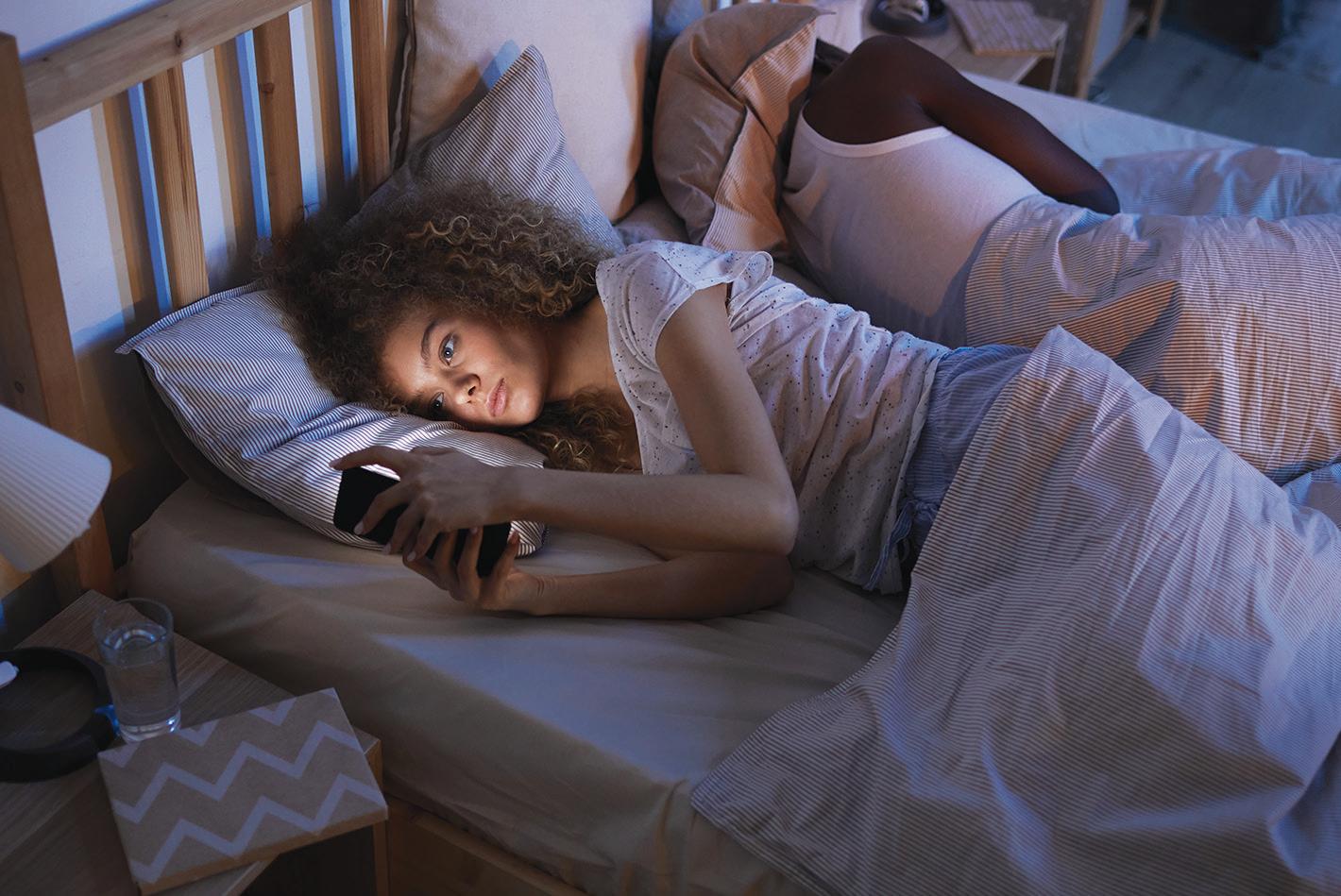
Dr. DelRosso
Electronics emit blue light that can interfere with the signals that tell the brain to produce melatonin, a sleep promoting substance. Furthermore, falling asleep with the TV on can be restless as the volume fluctuates and disrupts what would otherwise be a restful sleep. Watching TV also promotes bad “sleep hygiene” as the brain can start identifying the bedroom as a place to watch TV instead of a place to sleep, so the habit could contribute to symptoms of insomnia.
Dr. Zak
Everything is relative. Some people find falling asleep to TV helpful for them and do not have insomnia. Even if you are using a sleep timer, the noise of the TV turning off can cause an arousal.
Ask the doc continued from page 28
Q: I live alone. How can I find out if my snoring is a concern?
Dr. Zak
There are many symptoms of sleep apnea, of which snoring is just one, so not knowing whether or not you snore should not prevent you from seeking evaluation for possible sleep apnea (with other prominent symptoms being awakening gasping for air, unrefreshed or awakening with a dry mouth). That being said, there are apps that will record your snoring and, in pre-pandemic times, individuals without regular bed partners would often have friends or family report on snoring or, at times, symptoms would be reported during a medical procedure, such as colonoscopy or surgery.
Dr. Lipford
There are several smartphone apps that can monitor for snoring and provide you with trackable information. Some people are aware of waking up with a gasp, choke or snort that could indicate concerning snoring. But snoring isn’t the only indicator of a potential sleep problem. If you don’t feel rested by your sleep, mention it to your doctor. They may recommend further testing, which can now often be done in the comfort and convenience of your own bed.
Dr. Thomas
If you live alone, then snoring is not always a concern (who are you disturbing?). If you are curious, recordings can be done with a cell phone and played back, several applications can enable this. If you are concerned about sleep apnea, then direct measurement is best. Go through an MD and perhaps take a home sleep apnea test. In the near future, I expect that over-the-counter, medical-grade apnea diagnostics will be available. ...............................................
HAVE A QUESTION FOR THE SLEEP DOCS?
Submit your questions by email to healthiersleep@worldsleepsociety.org.
Questions are selected based on space & applicability.
World Sleep Society has created a list of healthy habits for healthy sleep
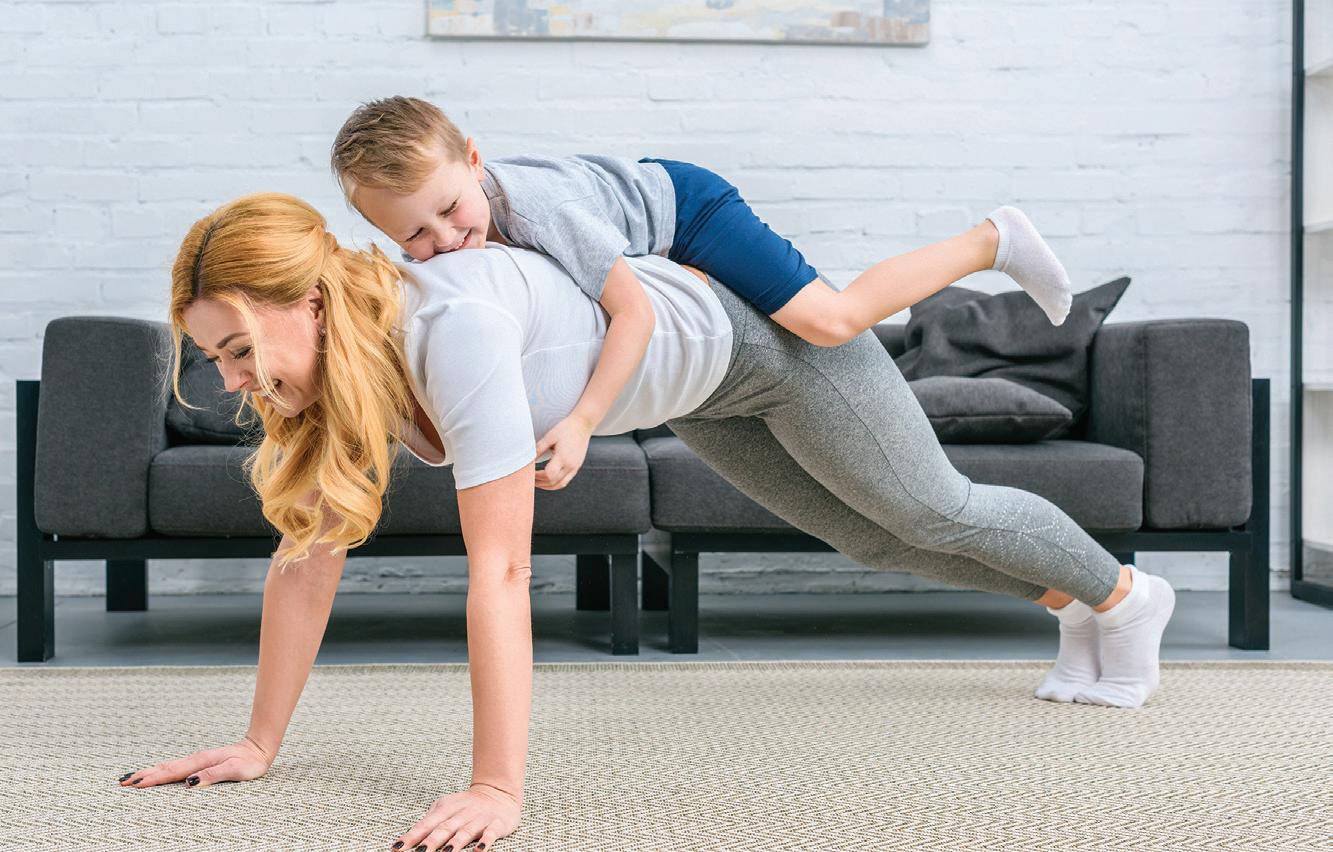
Establish regular sleep & wake times.
Avoid light from smartphones & tablets near bedtime.
Reserve the bedroom environment for sleep & sex only, avoiding work or study.
If you do not fall asleep in 20 minutes, leave the bedroom and return to bed when tired so your body will begin to associate the bedroom environment with sleep only.
Exercise regularly.
Do not exceed 30 minutes of daytime sleep or napping.
Avoid excessive alcohol ingestion four hours before bedtime.
Do not smoke.
Avoid caffeine six hours before bedtime.
Avoid heavy, spicy, or sugary foods four hours before bedtime.
A light healthy snack before bed is acceptable.
29 | January/February 2021
GET ACCESS TO THE LATEST IN SLEEP MEDICINE & RESEARCH WITH ON DEMAND SESSIONS FROM OUR DECEMBER 2020 VIRTUAL MEETING PLUS NEW CONTENT ARRIVING IN FEBRUARY 2021 AND CONTINUING THROUGH THE END OF THE YEAR FOR JUST $29
Program Topics
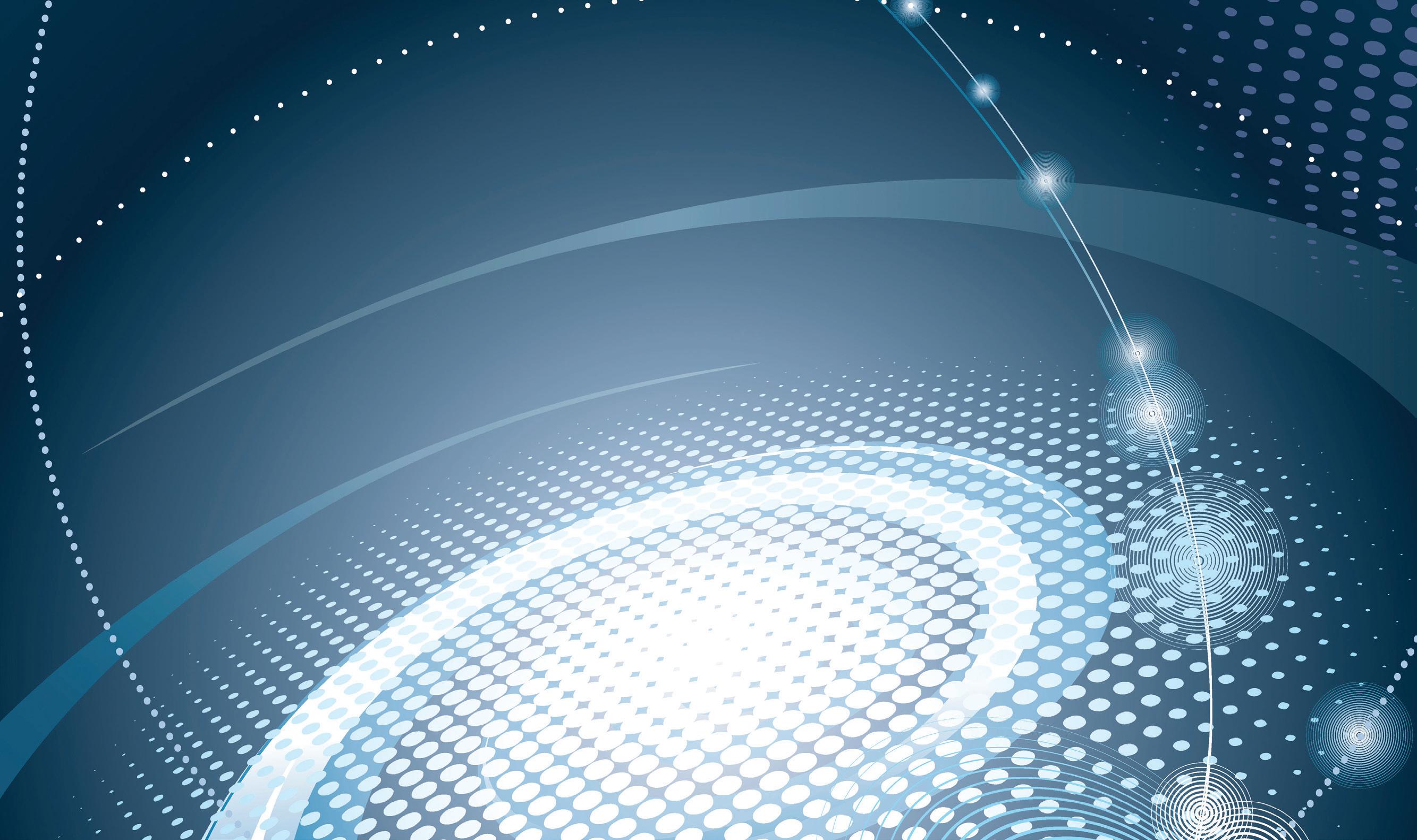
MENTAL HEALTH FATIGUE & ALERTNESS RLS DEVELOPMENTS & TREATMENTS OSA DIAGNOSIS & MANAGEMENT CIRCADIAN RHYTHM SLEEP-WAKE DISORDERS HEALTHIER SLEEP

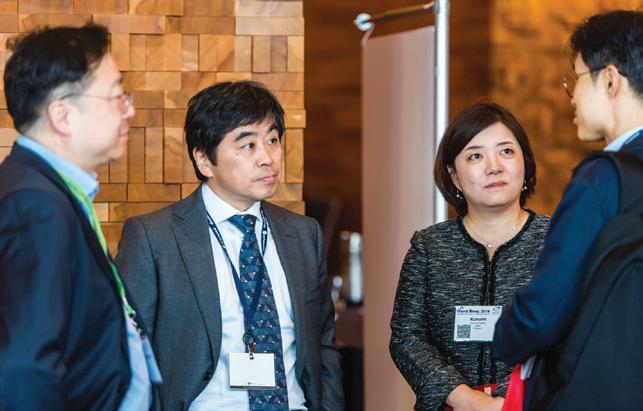
For more information visit worldsleepsociety.org/2021-virtual-meeting

